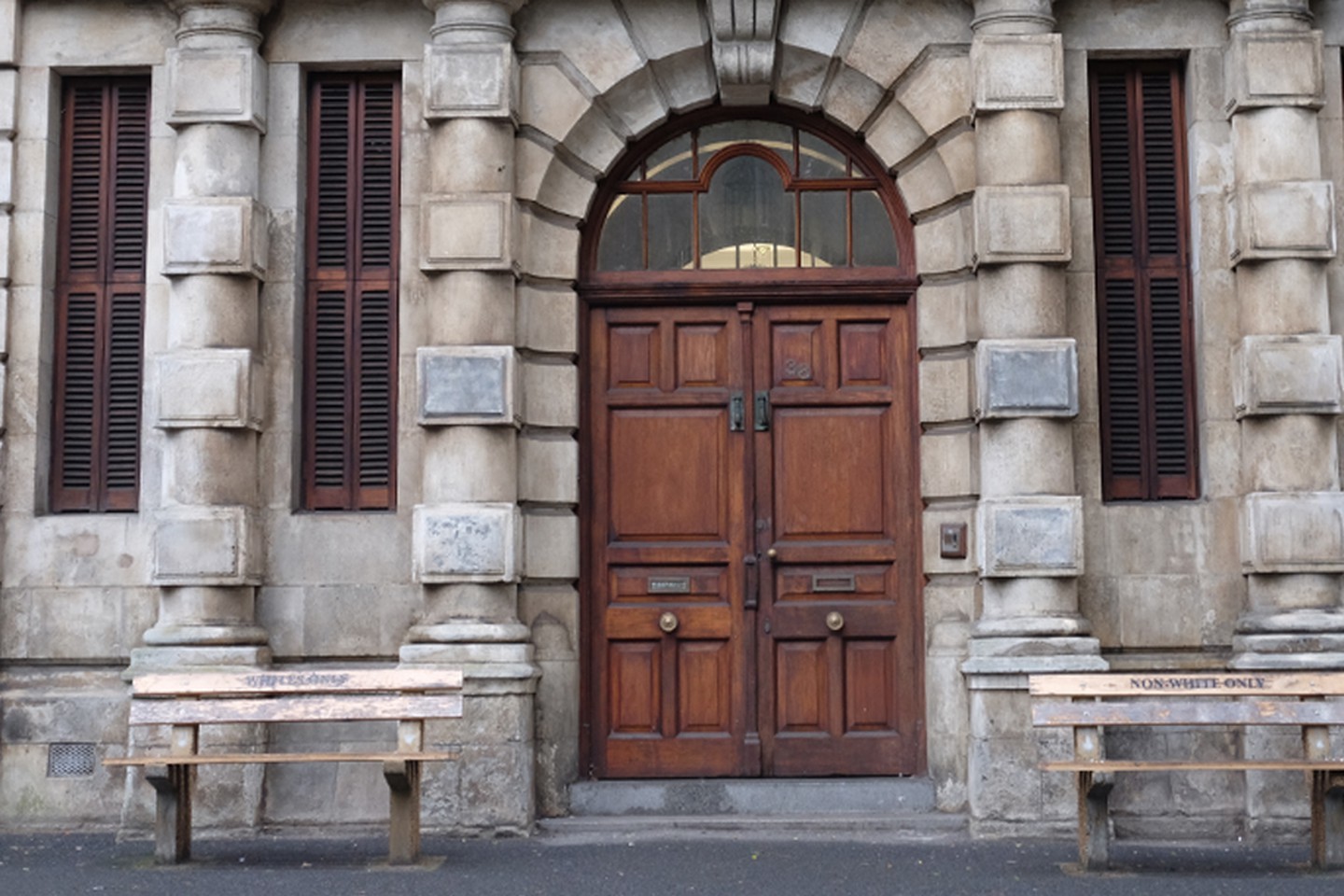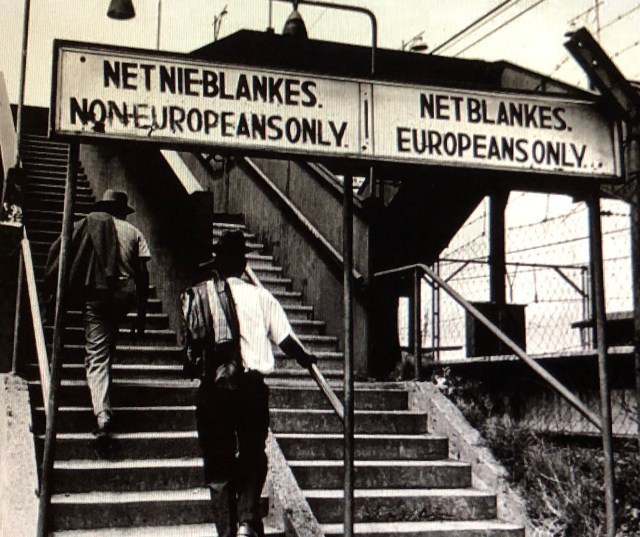This is a Virtual cache located outside the old Race Classification Appeal Board (now the High Court Annex) in Queen Victoria Street, Cape Town. At the listed coordinates you will find a plaque explaining how, between 1959 and 1991, people came here before an appeal panel to "argue" about what race they were, as was legislated at the time. You will also notice two benches labelled "Whites Only" and "Non-whites Only" respectively, which are an artwork mimicking apartheid-era public benches. The benches are a bit weather beaten now, and it's not easy to see, but have quotes from the Act that classified peoples race inscribed on them.

To log your find on this virtual cache, you will need to take a photo of yourself or something bearing your geocaching name with some part of the benches also showing. Your photo must be uploaded with your log to verify your visit and to satisfy the logging requirement.
I would really appreciate your log to include any thoughts or experiences you may have about Apartheid, but this is not compulsory.

Here is some additional information about Apartheid South Africa that you may find interesting to read:
In 1948 the National Party, led by DF Malan, came to power with their manifesto of Apartheid (separate development). Legislation was enacted that required all residents to register their race, with the intention being to segregate whites and coloureds, and expel black Africans to 'homelands' under the Group Areas Act.
Many race laws introduced in the 1950's provided whites with access to the most privileged suburbs, education, jobs and positions; including exclusive access to beaches, theatres, parks and public toilets. Every amenity imaginable was subject to racial categorisation, from taxis to ambulances, from maternity wards to graveyards, and from parks to walkways over roads. Police were entitled to stop a black person in the street and demand to see their papers - resulting in humiliation and even criminalisation if they were unable to produce them.
Between 1960 and 1976 apartheid dictated all aspects of life for many Capetonians, and all opposition was silenced through draconian legislation that suppressed and controlled opposition organizations.
Apartheid formally ended in 1994 with the first election that allowed the participation of voters from all races in South Africa.
The above information was sourced from www.capetown.at.co.za and www.sahistory.org.za
Apartheid was a really unfortunate chapter in South Africa's colourful history, and many still feel the effects of it to this day. We still have a long way to go to rectify the hurt, damage and mistrust caused by the brutal Apartheid regime. The intention of this Virtual cache is not to give you a thorough history of Apartheid, but hopefully make you stop and think, and reflect on this tragic period of South Africa's past.
Virtual Rewards 2.0 - 2019/2020
This Virtual Cache is part of a limited release of Virtuals created between June 4, 2019 and June 4, 2020. Only 4,000 cache owners were given the opportunity to hide a Virtual Cache. Learn more about Virtual Rewards 2.0 on the Geocaching Blog.
